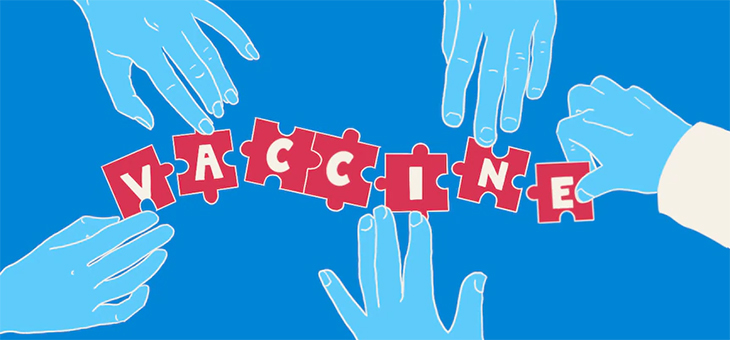Australians over the age of 50 could soon receive the AstraZeneca vaccine earlier than expected after the states and territories agreed to bring the COVID-19 vaccine timetable forward.
National Cabinet on Monday discussed resetting the vaccine rollout on the back of updated medical advice recommending Australians under the age of 50 receive the Pfizer vaccine over AstraZeneca amid concerns about rare blood clots.
Doctors are now reporting patients are missing their appointments for the AstraZeneca vaccine over safety concerns, with thousands of doses sitting idle in fridges across the country.
The nation’s leaders agreed “in principle” to a series of changes to the vaccine strategy, including bringing forward the rollout to allow Australians over the age of 50 to receive the AstraZeneca vaccine.
The changes will be formally put forward for approval at the next meeting on Thursday.
Speaking ahead of National Cabinet, Mr Morrison said he did not want AstraZeneca doses to go to waste and would discuss offering Australians aged 50-69 the AstraZeneca vaccine when he met state and territory leaders on Monday.
“We don’t want to see one vaccine that’s rolling off the line and going through the approval processes and the batch testing sitting in a fridge,” he said.
“If there’s someone over 50 who’s there and wants to take that vaccine we’ll be looking at how that can be achieved today.
“There are strong, strong arguments for the bring forward of over 50s with the AstraZeneca vaccine, which is a safe and effective vaccine for those aged over 50 and particularly important for those aged over 70 who are already in that priority group.”
Australians aged between 50-69 are currently in the so-called Phase 2a of the rollout, which has not begun yet.
The age group includes almost 6 million Australians, but so far just 1.5 million doses of COVID-19 vaccines have been distributed across the country.
According to the Department of Health, as at April 14, approximately 2.3 million doses of the AstraZeneca vaccine had been produced locally and 714,000 received from overseas.
Breakdowns of how many people have been given which vaccine are not provided by the government or health authorities.
The nation’s leaders also discussed setting up mass vaccination hubs, as vaccine supplies increased.
Mr Morrison also said he hoped to get millions of Australians under 50 in the last three months of the year, with the help of mass vaccination hubs.
“There’s a lot of work to be done given that would be effectively, if we wished, a 12-week sprint,” he said.
“There’d need to be plenty of planning to achieve that.”
The nation’s leaders agreed the use of the centres should supplement the work of GPs in the rollout.
However, Mr Morrison said the mass vaccination clinics would hinge on vaccine stock, as the government is unlikely to receive millions of doses of the Pfizer and yet-to-be-approved Novavax vaccines until after October.
Vulnerable Australians must come first, Labor says
National Cabinet agreed that vaccinating the most vulnerable remains the top priority.
It was a sentiment shared by Shadow Health Minister Mark Butler ahead of the meeting.
“Scott Morrison promised aged care residents and disability facility residents, the most vulnerable members of our community, would be fully vaccinated by Easter, but still more than three-quarters of aged-care facilities have not had their residents fully vaccinated,” he said.
“This is simply not good enough; Australia needs to speed up this crucial vaccine rollout.
“I’d like to see a new plan with clear timelines and targets.
“The last one which had targets like 4 million Australians by end of March, the job done by October, is clearly in tatters, we need a new plan with revised timelines and targets.”
Mr Butler also said the capacity to manufacture mRNA vaccines on a large scale in Australia was urgently needed.
While protein-based vaccines like AstraZeneca have been widely used for viruses including the flu, mRNA vaccines like Pfizer have not been broadly distributed in Australia before and only a few countries can make them.
These vaccines effectively carry molecular instructions to make the SARS CoV-2 spike protein – so a person’s body can produce it and mount an immune response.
Health Minister Greg Hunt on Sunday said the government was talking widely with manufacturers to start producing the vaccine on a wide scale in Australia but said it could take the best part of a year to get off the ground.
But Mr Butler said the technology was a crucial part of a fight against COVID-19, which was needed “urgently”.
“Other countries, Germany for example, decided they wanted to manufacture their own mRNA vaccines in country, to be assured of supplies of these state of the art vaccines, and they built a factory in about six months,” he said.
“We’ve seen for months now, talk from the government and no action.”
 © 2020 Australian Broadcasting Corporation. All rights reserved.
© 2020 Australian Broadcasting Corporation. All rights reserved.
ABC Content Disclaimer

